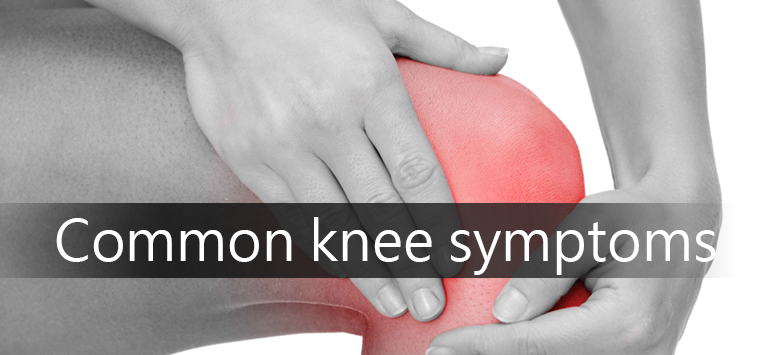Pain
The synovial membrane is covered with nerve ends, which are very sensitive. Traumas, inflamation, and swelling can stimulate these nerve ends, causing pain and thus sending warnings to the body. This is a protective mechanism.
Swelling
Hematoma from traumas or edema from inflamation are the main causes of swelling, which exacerbates pain and restricts join movements.
Stiff and cracking joints
Cartilage tears from trauamas, debris from torn cartilage, or scars from damage to or inflamation of the synovial membrane could all cause the knee to stiffen, crackle, or give out.
Instability
Ligment ruptures from a truama or severe deformity could cause the ligment to become loose, causing instable gaits, weakness in the leg, or a feeling of the knee giving out.
Stiffness
Acute pain, such as trauma, fracture, and gout, or chronic pain, such as osteoarthitis and rheumatoid arthitis, could cause joints to lose some range of motion which may lead to stiffness.
Deformity
If a pathological degradation of a joint reaches the advanced stage, the joint may deform because of the injury to the cartilage. Deformity severely reduces the knee's ability to function.
The above symptoms often occur intermittently, unpredictably, but persistently. They cause sufferers to lose productivity at work and to be unable to do things that they like to do, thus greatly diminishing their quality of life.

